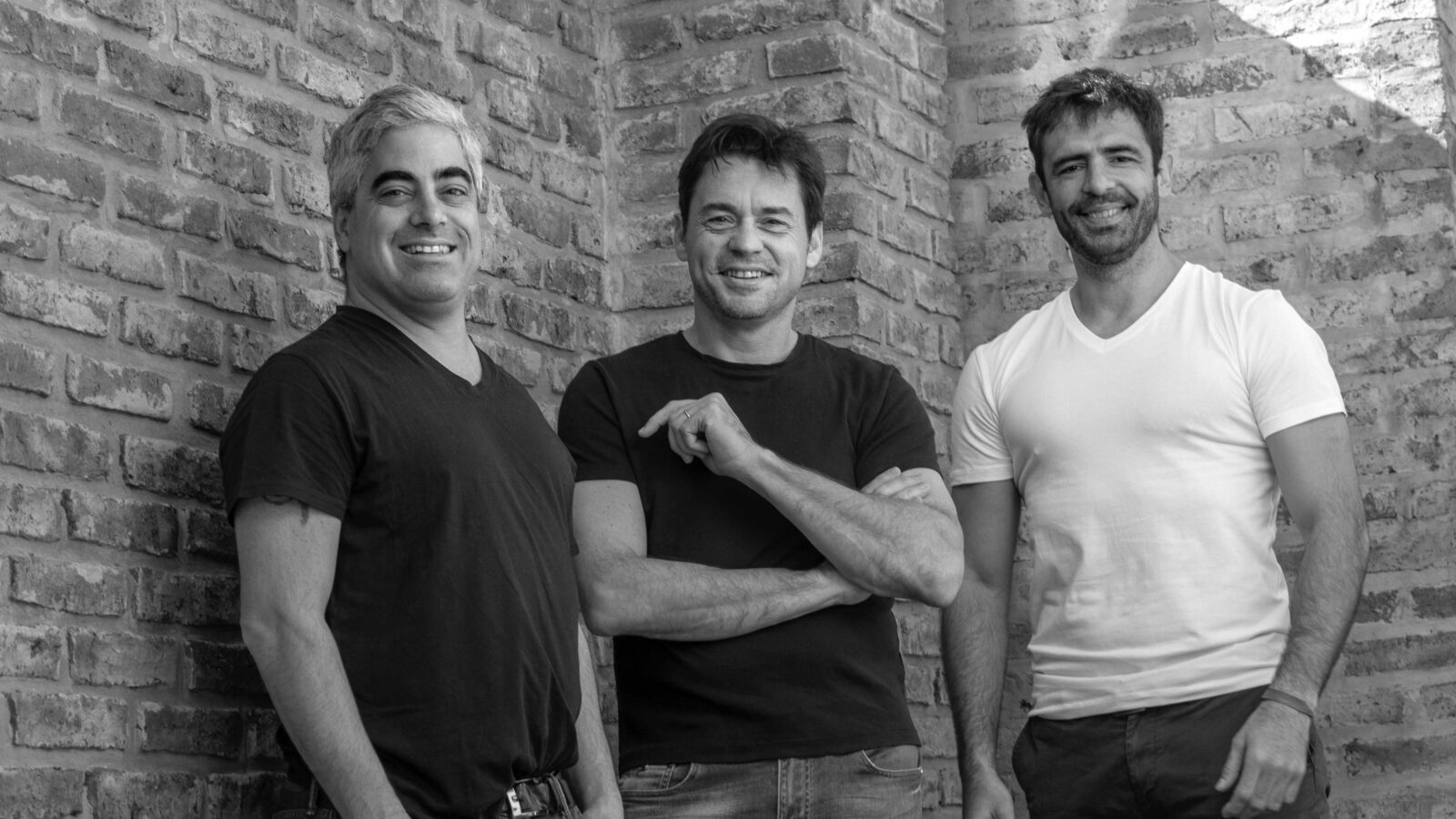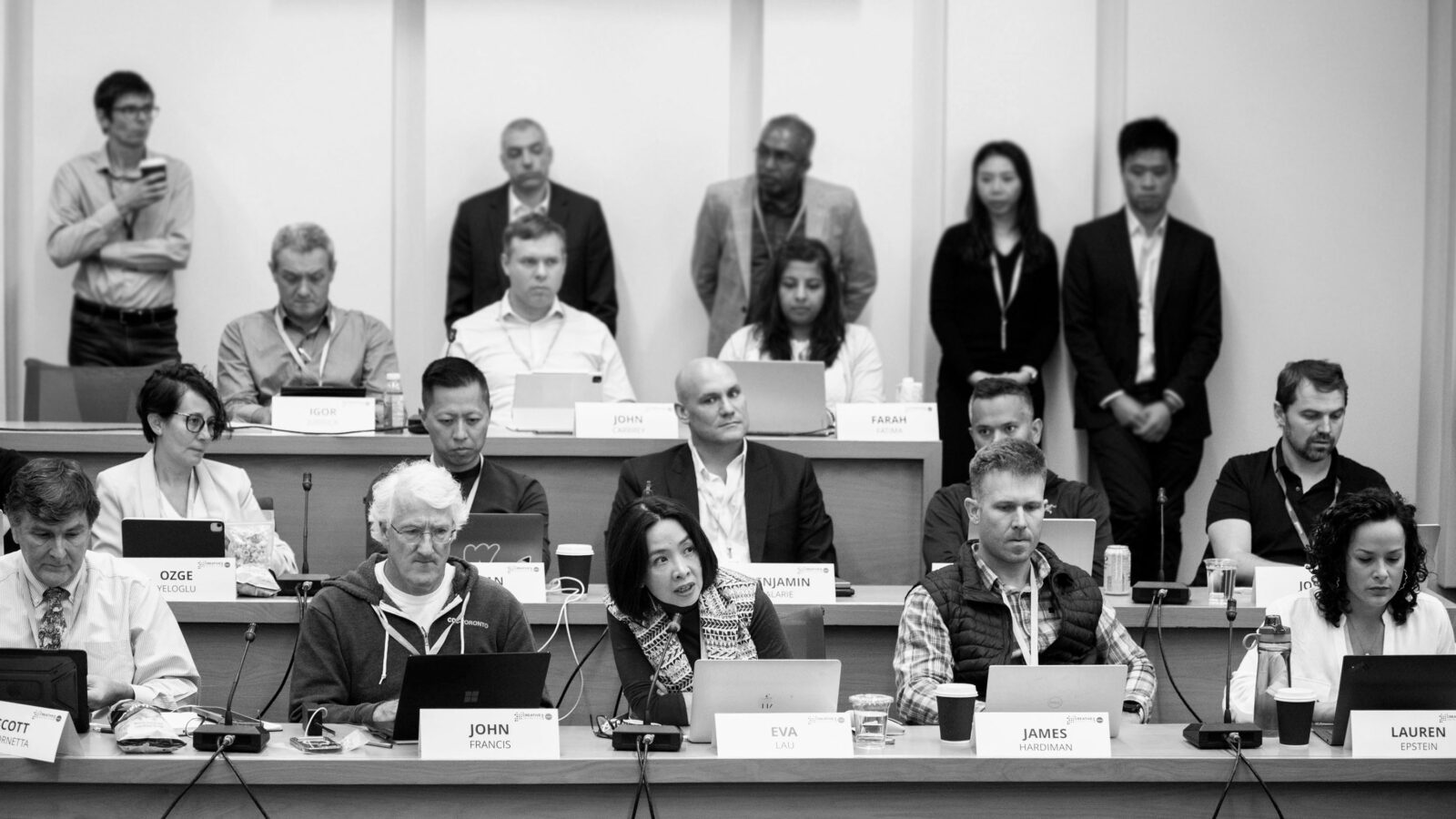A founding partner of Version One Ventures, Boris Wertz is an early-stage investor in consumer internet, SaaS and mobile. He co-founded JustBooks in 1999, which he eventually sold to AbeBooks. Later, he served as COO for AbeBooks until it was subsequently acquired by Amazon. In 2012, he started Version One Ventures, in 2014 joined venture capital firm Andreessen Horowitz as a board partner and, later that year, joined the CDL as an Associate. Tonner Jackson, a Senior Venture Manager at CDL-West, had a chance to chat with him about his experience as an entrepreneur and his work at Version One.
Tonner:
I thought we’d start with your entrepreneurship story. What was JustBooks and why was it the first business you wanted to start?
Boris:
I always wanted to be an entrepreneur. It was sort of high on my list, as I came out of an entrepreneurial family. But the way it actually happened was really just jumping into an online company, building something around “internet 1.0” in 1999.
I had just finished my Ph.D. and expected to start a normal job. I had actually already signed something, but suddenly this “internet thing” exploded and became super interesting, with tons of traction and I thought that I had to be a part of it. I told my future employer that I wouldn’t start the job. I assembled a team and found an idea or two we were excited about, which gave birth to JustBooks.
Tonner:
Why books? Why was the timing right for combining the “internet craze” with selling books?
Boris:
We were a bunch of Ph.D. students who had seen just how expensive new textbooks were, so the idea was to create a marketplace for used books where you could buy textbooks cheaper. But that quickly expanded to the whole collectible, rare and “hard to find” category. Ultimately, the idea was in aggregating supply from all of these booksellers from around the world.
Tonner:
You followed the trajectory of a lot of successful entrepreneurs, who transition from founding, and exiting a business, to investing. At a more granular level, I know you’re more focused on seed-stage companies. Why is that?
Boris:
I’m fascinated by the formative years – the first two or three years – when the entrepreneur is trying to figure out product market fit, where you set a culture, where your company can take very different strategic directions. I find with investments in later-stage companies, the path becomes much clearer and there are different challenges, like scaling up, thinking about long-term trajectory and motivating people for different reasons, but I’ve always been much more interested in those years and the sorts of challenges that come with them.
Tonner:
With VersionOne, your commitment to working with companies at the seed stage makes a lot of sense, but I imagine you get a lot of requests for your time in the form of participation with other incubators/accelerators. Why did you choose to get involved with the CDL program and why have you increased your involvement over the past few years?
Boris:
I was introduced to Ajay four or five years ago. He invited me to a few meetings and I thought it was a super interesting platform for a few reasons. One, that it brought startups that I wouldn’t typically see as an investor, so I felt incredible exposure to what was happening in early-stage innovation.
The second thing was seeing all of these mentors discussing investment opportunities and giving advice in front of each other. It gave me an opportunity to learn, and compare my investment thesis with other investors. It was a model I hadn’t seen before. Last is the 100% transparency and honesty. Everything happens in one room and there are no back channels, no backdoor meetings. It was super refreshing, [coming from] a VC world where people don’t typically work together and can give advice that’s self-serving and not necessarily in the interest of the entrepreneur.
What’s kept me involved? A few years ago, I came to the first few meetings and it was a modest time commitment. Now I’m a part of two-session days in Toronto in addition to the time I spend at CDL-West, [which is] an increase of four or five times the time commitment over the years. My reasons for that extra time commitment are still roughly the same reasons I joined: An incredible view into real innovation, spending time with other investors where the forum is efficient and honest, and, last but not least, it’s becoming a place for deal flow. We’ve done our fair share of deals for Version One at the CDL.
Tonner:
A lot of prospective founders who are thinking about applying to our program ask us what makes the CDL different from other accelerators or incubators. Do you have a perspective on that as a mentor/investor?
Boris:
There are a few things. First, it’s a longer program. YC and Techstars are both three months, and here [at the CDL] we’re talking about a nine-month program from start to finish. Three months is fine when you have product market fit and you’re trying to solve one problem that is clearly defined, but a lot of companies don’t have that. Sometimes you just need a little more time to figure things out, and then you can scale. I think it’s great to have the total nine months, as you can go away for eight weeks and come back with totally different priorities. At the core, I think it is having more time and exposure to other mentors. And more time to deliver on your business objectives.
The second thing is that there is a vast amount of knowledge around the CDL table that you’re able to tap into every 8 weeks that you wouldn’t typically get elsewhere. At YC, you have one lead mentor, maybe a second. At the CDL, with the big groups of 30 to 40 people sitting in one room, you sometimes get interest you wouldn’t have had otherwise. Someone’s random experience can turn into a really helpful contact. It’s an unusual environment in the startup world. Those are some of the things that make the CDL a little different from other programs.
Tonner:
In past CDL sessions, you’ve said that there are certain conditions that make a company a great fit for our program. What do you think makes a company a good fit for the CDL?
Boris:
I think a company with great fit for the CDL will have two things. The first is a very strong technology. The CDL seems to do a good job of helping founders think through the overall business, especially first-time entrepreneurs who have a deeply technical focus.
The second thing that makes a great fit is when the CDL is the first meaningful outside help or investment for the company. If you’re a serial entrepreneur, or working in a hot area, it’s a lot easier to raise through a VC, even at the seed stage it’s easy, but what’s interesting about the CDL is that we can serve pockets that are underserved. Thalmic Labs is the great example of a company that did not have much traction or a lot of people believing in them; I think the CDL program was able to tease out a lot of early insight that investors from a traditional environment were missing.
Tonner:
One of the things we think a lot about is what makes a great “CDL company”; another is what makes a great team and how we can do a better job of identifying one. If you could boil down the qualities that you look for in a founder you’d invest in, what would they be?
Boris:
We always think about three things with respect to founders:
First, the pure raw talent of the founding team. Do they have the right skills? Do they have complementary skills? Are they top-notch in everything they tackle? You can see very quickly if there are hard skills they need to acquire, as hardcore technology skills are scarce by nature.
The second thing: Do they really feel passionate about this project? Would they do this if they could never raise anything significant for it? Or is it more opportunistic and out of all the things that they wanted to do in their life, this was just the most interesting but only slightly better than something else? We want founders that have real conviction, real passion for their project.
The last thing is something that we’ve just started to focus on in the last little while: Are they good storytellers? Can they communicate a vision of what they want to achieve and how they want to achieve it? At the beginning I didn’t focus much on that, but the tech markets have gotten noisier for entrepreneurs — there are more investors and more competing projects. The most successful companies have this big vision that they can communicate in a way that gets people excited. If you have that, suddenly everything from hiring employees to convincing customers to use your product and convincing investors to invest in your startup is all so much easier.
Tonner:
With that said about founders, what markets are occupying your attention right now at Version One?
Boris:
There’s a few areas that are very interesting right now. Crypto, everything that is happening in biotech and, last but not least, hard science. It’s not something opportunistic you can get into, and we haven’t traditionally invested in that.
Crypto is interesting, but it’s very early. The next two to five years will see what we call layer 1 and layer 2 solutions, where building out the infrastructure will be the very big focus. So it started with wallets and exchanges, and now it’s moving to rebuilding financial infrastructure. Things like making options on the blockchain. For mass adoption, the tools aren’t there, the users aren’t there. The real decentralized apps need more time.
Tonner:
I’ve read that it’s Version One’s position that “the time is right” for biotech. Seeing that network effects are so core to the VersionOne investment thesis, would you say biotech is an exception? Or is there an element of network effects in biotech?
Boris:
What we’re focusing on in bio is the data layer. We think there are a lot of opportunities in building biodatabases that will allow for personalized medicine down the road. The question is: How can you build these biodatabases? What are the tools? The software applications?
For example, we invested in a company that’s taken an approach for genome sequencing that reduced the cost of that sequencing to one-tenth of traditional approaches. Now you suddenly have way more opportunities for sequencing whereas in the past, cost made it prohibitive. There’s just a lot more available data than there ever has been, more data that’s available to these biodatabases. So that’s the way we think about it. It’s a very thin layer that we’re looking at. We’re not really looking at devices or drug development.
Tonner:
Thanks so much, Boris. Is there anything you want to leave us with?
Boris:
The CDL is such an ambitious and inspiring project for me, and I’m very happy to be involved and be a small part of it.





